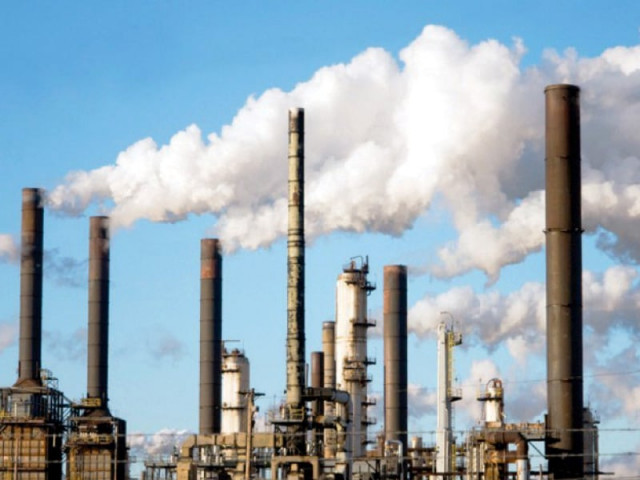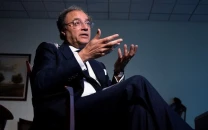Refineries reluctant to deposit deemed duty in Escrow accounts
Also fail to obey govt’s directives to upgrade their plants to comply with Euro II standards.

In July 2002, the govt introduced IIP tariff protection formula, under which oil refineries were allowed to collect 10% deemed duty on HSD and 6% on kerosene, light diesel oil and JP-4 on ex-refinery prices so they can self-finance projects without guarantees of the government. PHOTO: FILE
The oil refineries are showing reluctant, again, to comply with the Economic Coordination Committee’s decision to transfer money collected through deemed duty in Escrow accounts.
Sources told The Express Tribune that deemed duty was imposed on oil consumers to help oil refineries set up plants to upgrade products in 2002, but since then the revenue collected had exceeded Rs150 billion and the plants are yet to be upgraded.
The officials said that refineries were required to create Escrow accounts to be operated with the approval of the finance ministry.
“At present, the oil refineries have only Rs6 billion in special reserves, while the remaining amount had been used by refineries to buffer losses,” officials added.

The previous government extended the rate of deemed duty from 7.4% to 9% on high speed diesel and extending the date for completion of the upgrade process to December 2015 from July 2014. The extension, however, was linked with the decision of opening Escrow accounts jointly-owned by the Ministry of Finance and oil refineries to deposit 50% of paid-up capital to set up modernisation plants. The oil refineries have also been provided incentives like deregulation of prices of petroleum products and linking with the actual import price.
Officials of the finance ministry said that refineries were given additional incentives, but to no avail as they still did not honour their commitments and upgraded the plants, with the only exception being the Pakarab Refinery (Parco).
According to officials, refineries reported stellar earnings till 2008-09, but did not invest in upgrading and modernising their plants despite government’s directives to establish desulphurisation/isomerisation plants at their sites.
Due to their non-compliance to government’s directives, the deadline was extended multiple times. The refineries were, earlier, asked to complete plants in 2010, which was extended to 2012, then to 2014, and then to 2015.
In July 2002, the government introduced independent power producers tariff protection formula, under which oil refineries were allowed 10% deemed duty on HSD and 6% on kerosene, light diesel oil and JP-4 on ex-refinery prices so they can self-finance projects without guarantees of the government.
However under the initial formula, the refineries were bound to transfer the profit over and above 50% of the paid-up capital to special reserves for upgrading and modernising their refineries or to offset losses, if incurred.
The special reserve was held with the National Refinery, Pakistan Refinery and Attock Refinery, and the amount accumulated to Rs17 billion in 2008.
When contacted, Oil Companies Advisory Committee Chairman Adil Khattak confirmed that the Escrow accounts had not been opened yet due to concerns over the mechanism as bureaucratic red tape can create problems with payments to the contractor.
Khattak said that CEOs of oil refineries had held meeting with the petroleum minister who had agreed to develop a mechanism which will result in speedy payments to contractors.
Published in The Express Tribune, July 30th, 2013.
Like Business on Facebook, follow @TribuneBiz on Twitter to stay informed and join in the conversation.



















COMMENTS
Comments are moderated and generally will be posted if they are on-topic and not abusive.
For more information, please see our Comments FAQ